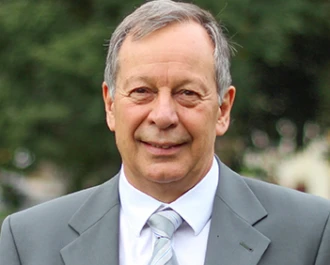
Triple-negative breast cancer (TNBC) is an aggressive disease, often leading to breast cancer spread (metastasis) and a poor prognosis. It is more common in young women than other forms of breast cancer. The term “triple-negative” reflects that these tumours do not express the estrogen, progesterone or HER2 receptors, which limits potential treatments. Until now, the main option was broad chemotherapy, as targeted approaches were not possible.
A new class of “smart drugs” may change this. These drugs use an antibody that recognises the TNBC cells. The antibody is coupled to a chemotherapy drug, ensuring that the chemotherapy cargo is directly delivered to the target. A clinical trial of one such “smart drug”, called sacituzumab, has just been published in the New England Journal of Medicine.
In the trial, 108 women were treated with sacituzumab, after having had at least two previous chemotherapy regimes. Usually, after a patient has had three or four different treatments, the chance of response to a new drug is low. However, in this trial, some patients had up to ten previous treatment regimes.
The results showed that one in three patients responded to the drug, with their tumours reducing in size. The median duration of response was 7.7 months and median overall survival was 13 months. This was significantly longer than is normally seen in these this stage of TNBC. Importantly, the type of previous chemotherapy did not affect the success rates of sacituzumab. Treatment was well-tolerated, with few side effects. Some patients experienced low levels of blood cells, and three needed to discontinue the treatment due to toxicity.
“There’s an unmet need for patients with metastatic triple-negative breast cancer, and we see significant tumor shrinkage with this new therapy,” said Dr Kevin Kalinsky, the senior author and an oncologist at Columbia University. ““With this smart drug, we can deliver a much higher dose of the payload since we’re sending it directly to the cancer cells.”
Professor Geoff Lindeman, NBCF-funded researcher from the Walter and Eliza Hall Institute of Medical Research an oncologist at the Royal Melbourne Hospital and Peter MacCallum Cancer Centre, welcomed the news: “this early phase study has shown that the drug is relatively safe and has promising clinical activity. However further studies are needed to properly investigate its role and effectiveness for women with this clinically aggressive form of breast cancer.”
A larger Phase 3 study is now recruiting 490 participants in the USA and Europe. This trial will directly compare sacituzumab with conventional chemotherapy, to confirm that it is more effective at delaying disease progression.
More News Articles
View all News



